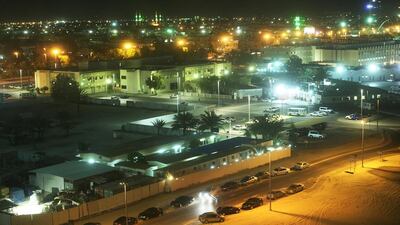The street is brighter than usual. The corner house has been decorated in fairy lights from roof to floor. Someone must be newly wed. Furthermore, the next-door neighbour has fitted two powerful new spotlights to illuminate his driveway.
Meanwhile, inside the houses, phone lights blink on and off throughout the night, impatiently demanding attention. Similarly, a row of green lights on a Wi-Fi router and a computer performing a nocturnal download make further contributions to this night-time symphony of light.
This ritual has become so widespread and common as to have earned itself a fun acronym; scientists call it "Alan", which stands for artificial light at night. I imagine the scientist who came up with this acronym was himself called Alan.
Cute acronyms aside though, artificial light at night poses a serious risk to human health. Our bright nights come at a price. Beside the environmental consequences of perpetual illumination there are also negative effects on the mind and body.
A recent review of the related research, published in Chronobiology International, concludes that human exposure to artificial light at night is associated with an increased risk of several health problems, including breast cancer, diabetes and sleeping disorders. Researchers suggest that this might be related to artificial light at night’s effects on melatonin, also known as the Dracula hormone because it tends to be more active at night. Artificial light at night appears to suppress the release of melatonin.
Experimental research using animals supports the idea that exposure to night-time light might actually play a role in causing health problems. One study, published in the Proceedings of the National Academy of Sciences, exposed mice to dim light during the night or a regular light-dark cycle. The mice all received the same quantities of food and didn't differ in activity levels. However, the mice in the night-time light condition gained more weight than their counterparts living in the regular light-dark conditions.
Beyond physical health a 2012 study published in the Journal of Molecular Psychiatry, also suggests a link between exposure to night-time light and mental health.
The study, led by Tracy Bedrosian, a neuroscientist at Ohio State University Medical Centre, exposed hamsters to dim night-time light approximating the amount of light emitted from a computer screen or TV.
After a few weeks, the previously happy hamsters began to exhibit behavioural changes similar to those observed in depressed humans; social withdrawal and anhedonia (a diminished appetite for pleasure). Furthermore, the hamsters evidenced structural changes in their hippocampi, a brain region also implicated in human depression.
Maybe our increasingly LED-lit lives have made a contribution to the rising rates of depression? This fits with an old idea about mental health and the full moon. Psychologists have argued that in pre-industrialised societies, when nights were dark – before artificial light at night – a bright full moon might prove especially disruptive to sleep patterns, thereby triggering psychological disorders in the vulnerable.
Psychologists have known for several decades that anything disruptive to our circadian rhythms (the body clock) can trigger episodes of psychological disorder, especially mood disorders (depression and mania). The issue of night-time light however, has now become enough of a concern for the American Medical Association to publish a public report called Light Pollution: Adverse Health Effects of Night-time Lighting.
If the prospect of anthropogenic climate change isn’t motive enough to turn out unnecessary lights, then perhaps our own immediate health is. The UAE is a global leader in the purchase of consumer electronics. That's a lot of night-time light sources. Overly powerful yard lights and wedding illuminations also make their contributions to light pollution.
Simple problems, thankfully, often require simple solutions. Just turnout the light. In the above mentioned case of the unhappy hamsters, allowing them to go back to regular “lights-out” sleeping arrangements reversed their condition in about two weeks.
Eliminating artificial light at night from our lives is the sleep equivalent of eating organic – sleep without additives. This is how we used to sleep before iPads replaced teddy bears as our childhood bedfellows.
Dr Justin Thomas is an associate professor at Zayed University
On Twitter: @DrJustinThomas


